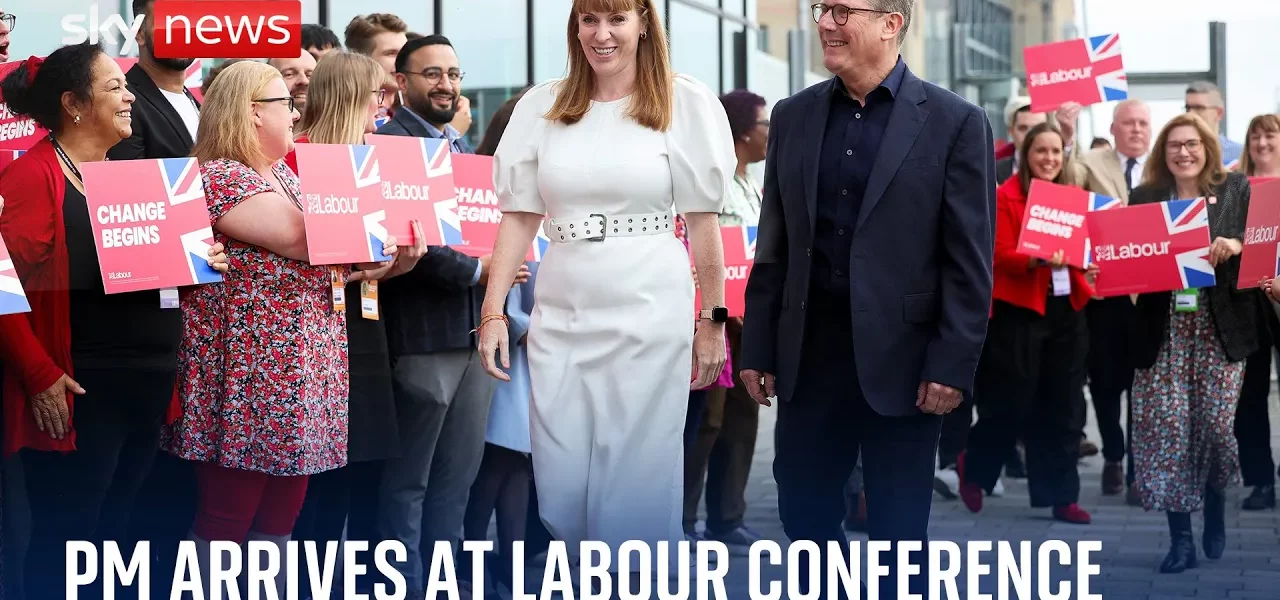Labour’s First Conference in Government: Celebrations and Controversies

Welcome to an in-depth exploration of Labour’s first conference in government after 15 years. Amidst a celebratory atmosphere, the party faces critical scrutiny and significant challenges. This article delves into the key discussions, controversies, and future plans that emerged from the event.
Introduction to Labour’s Conference
The Labour Party’s first conference in government in over a decade took place in Liverpool, showcasing a mix of celebration and contention. With the slogan “Change Begins,” the party aimed to project a positive narrative about its future. However, recent controversies surrounding party leader Keir Starmer’s acceptance of clothing donations have overshadowed the event, prompting discussions about transparency and integrity within the party.
Celebratory Atmosphere at the Conference
The conference opened with enthusiastic applause and a palpable sense of optimism among Labour members. Attendees expressed their excitement about being part of the party’s resurgence. This event marked a significant milestone, as it was the largest conference the party had ever hosted. The mood was buoyed by the collective hope for change and improvement in the UK.
Keynote Speakers
Prominent figures such as Chancellor Rachel Reeves and Deputy Prime Minister Angela Rayner took the stage to share their visions for the future. Their speeches emphasized a commitment to addressing pressing issues and delivering positive outcomes for citizens.
Positive Initiatives and Policies
- Economic reforms aimed at stabilizing the UK’s economy.
- Plans for increased investment in public services.
- Strategies to tackle social inequality and support vulnerable communities.
Controversies Surrounding Keir Starmer
Despite the celebratory mood, the conference was not without its controversies. Keir Starmer faced backlash over reports that he accepted £16,000 worth of clothing from a party donor. This revelation sparked debates about ethical standards and accountability within the party.
Response from Party Officials
In light of the controversy, Starmer and other party leaders announced they would no longer accept such donations. They emphasized the need to focus on the party’s positive agenda rather than distractions from the media. This decision was aimed at restoring public trust and addressing concerns about potential conflicts of interest.
Criticism from Within the Party
Labour MP Diane Abbott voiced her concerns, accusing the party of being too closely aligned with wealthy donors. She highlighted the disparity between the challenges faced by ordinary families and the privileges enjoyed by party leaders.
Economic Challenges Ahead
As Labour ministers underscored their commitment to addressing the economic mess inherited from previous governments, they acknowledged the tough decisions that lay ahead. This included potential spending cuts and policy changes aimed at stabilizing the country’s finances.
Public Sentiment and Expectations
Research conducted by Labour Together indicated that any deviation from the public’s priorities could lead to a significant drop in support for the party. This highlights the pressure on Labour to remain responsive to the needs and concerns of the electorate.
Protests and Public Opinion
Outside the conference venue, protests served as a reminder of the challenges Labour faces in maintaining public support. Activists voiced their demands for accountability and transparency, urging the party to prioritize the needs of everyday citizens.
Conclusion: Looking Forward
Labour’s first conference in government was a blend of celebration and scrutiny. While the party showcased its ambitions for change and improvement, it also faced significant challenges stemming from recent controversies. As Labour leaders strive to articulate a clear vision for the future, it is crucial that they address public concerns and maintain transparency. The path ahead will require resilience and a commitment to the principles that resonate with voters. For those interested in the future of UK politics, the developments from this conference will undoubtedly be pivotal.
Stay informed about Labour’s ongoing journey and the implications for the UK political landscape by following our related articles on economic policies and party dynamics.
“`




